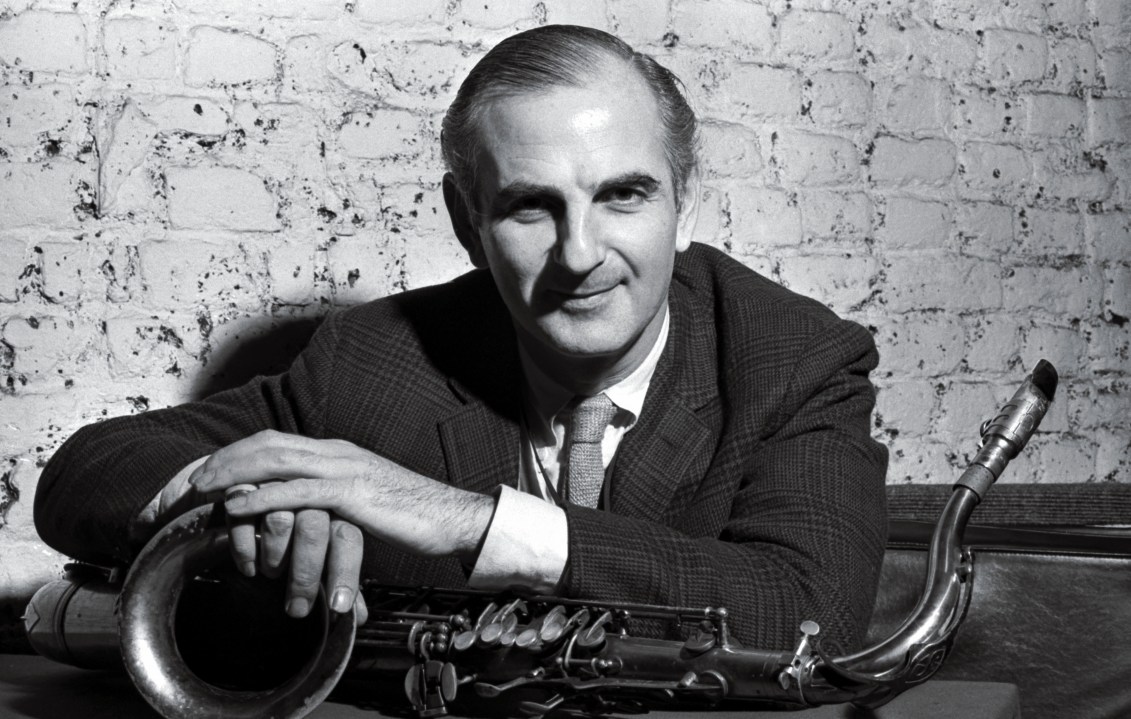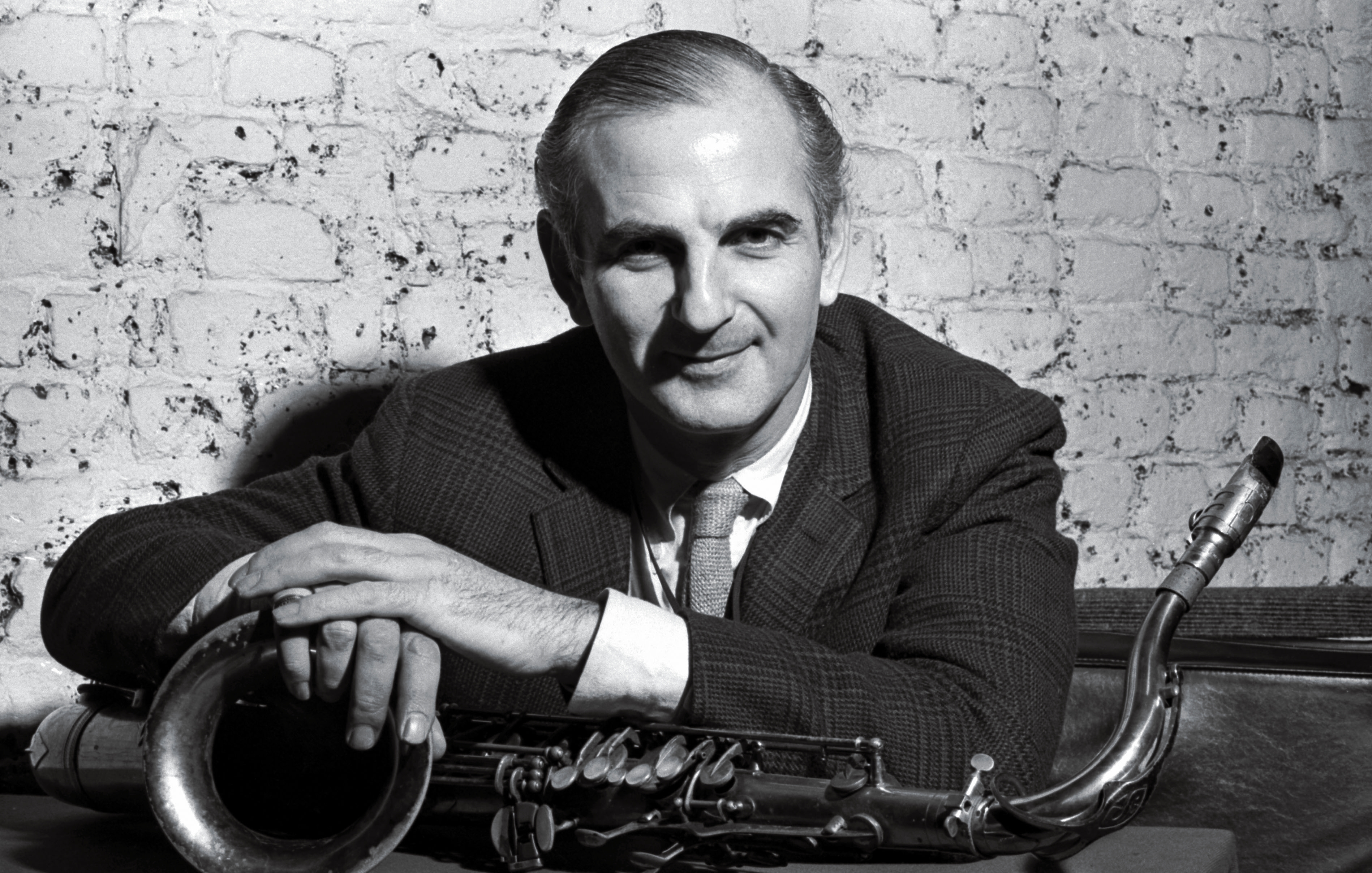Ronnie’s: Ronnie Scott and His World-Famous Jazz Club was like the TV equivalent of an authorised biography: impressively thorough, often illuminating, certainly long — and perhaps a bit too reverent for its own good.
The programme began with some of today’s jazz musicians testifying to just how great the club is. From there, we cut to the story of Scott himself, with his Jewish East End background and his early love of the saxophone. By 16, he was accomplished enough to cross the frontier from East End to West, and played in various swing bands. But then he and his fellow 1940s hipsters discovered bebop, a reaction against commercialised swing that preferred its audiences to listen earnestly rather than merely dance. And with that, Scott started performing on liners going to New York — mainly on the grounds that they were going to New York, where he could see Thelonious Monk, Charlie Parker and Dizzy Gillespie playing in different clubs on the same night.
There was a strong sense that, even in happier times, the programme was opting for discretion wherever possible
Back in Britain, he decided there should be a New York-style jazz club in London — although only once he’d started inviting American musicians over did the punters really start showing up. And watching the terrific clips on Sunday, you could certainly see why: Ella Fitzgerald in surprisingly flirtatious mood with the audience; Buddy Rich giving his drum kit the sort of pounding that shouldn’t be achievable with only two arms; Gillespie proving once again that it’s impossible to watch him without thinking: ‘Blimey, look at that bloke’s cheeks!’
Towards the end the programme darkened, as the full extent of Scott’s depression — a closely guarded secret at the time — emerged. Never far below the surface, it took over more and more in his later life, especially after a botched dental operation meant he couldn’t play his beloved saxophone anymore. When he was found dead in his Chelsea flat in 1996, the inquest found the cause of death to be an ‘incautious dose of sedatives’ rather than suicide — although in its gentle way Ronnie’s appeared to suggest that this verdict might have been a kindly one.
All of which was fine — indeed, very good — as far as it went. But there was also a strong sense that, even in happier times, the programme was opting for discretion wherever possible. Two different women were described as ‘Scott’s partner’ without further explanation. We heard from a daughter of his without learning who her mother had been. More damagingly, there seemed to be a blanket ban on anything that might be construed as gossip. Given what must have gone on with all those jazz types behind the scenes at the club, this was surely so discreet as to leave a large part of the story untold.
In the end, Ronnie’s still felt like a deserved tribute to the man and his venue. Yet — like quite a lot of jazz in my experience — it might well have benefited from being a little less solemn.
Luckily, excessive solemnity wasn’t a problem in What We Were Watching: Song and Dance Spectaculars. Despite her slightly stilted delivery, presenter Grace Dent achieved a neat balance between celebration and satire as she provided a winningly nostalgic reminder of a once ubiquitous, now entirely vanished television genre.
From the late 1960s to the early 1980s, pretty much every family-friendly pop star — from Cilla to Cliff, Twiggy to Tom Jones — became that fabled figure, the ‘all-round entertainer’, as they were given their own TV variety show. Not that there was much variety among the shows themselves. The stars exchanged excruciating scripted bantz with big-name guests. (Cliff: ‘Have you managed to see any of our ancient sights?’ Aretha Franklin: ‘Why yes, I bumped into Hank Marvin only a moment ago.’) They did weird cover versions of a wide-ranging selection of chart songs. (Lulu’s version of ‘The Theme from Shaft’ featured Les Dawson as the eponymous ‘sex machine to all the chicks’.) Above all, they surrounded themselves with dance groups who specialised in jumping in the air and scissoring their legs while wearing tank tops and flares, before running past the camera. Admittedly, the dancers did change their costumes occasionally. Those accompanying Val Doonican’s somewhat improbable version of Mungo Jerry’s ‘In the Summertime’, for example, did their jumping in Edwardian bathing suits and flippers.
The market leaders among these dance groups were the Young Generation who appeared alongside virtually every all-round entertainer of the day. Not only that, but one Christmas night on BBC2 they sang and danced their way through the life of Jesus, with future Pop Idol creator Nigel Lythgoe playing the apostle James. (‘I was a fisher in my little skiff on the Sea of Galilee,’ his big number began.) Fortunately, they drew the line at interpreting the Crucifixion through the medium of running around a lot.







Comments